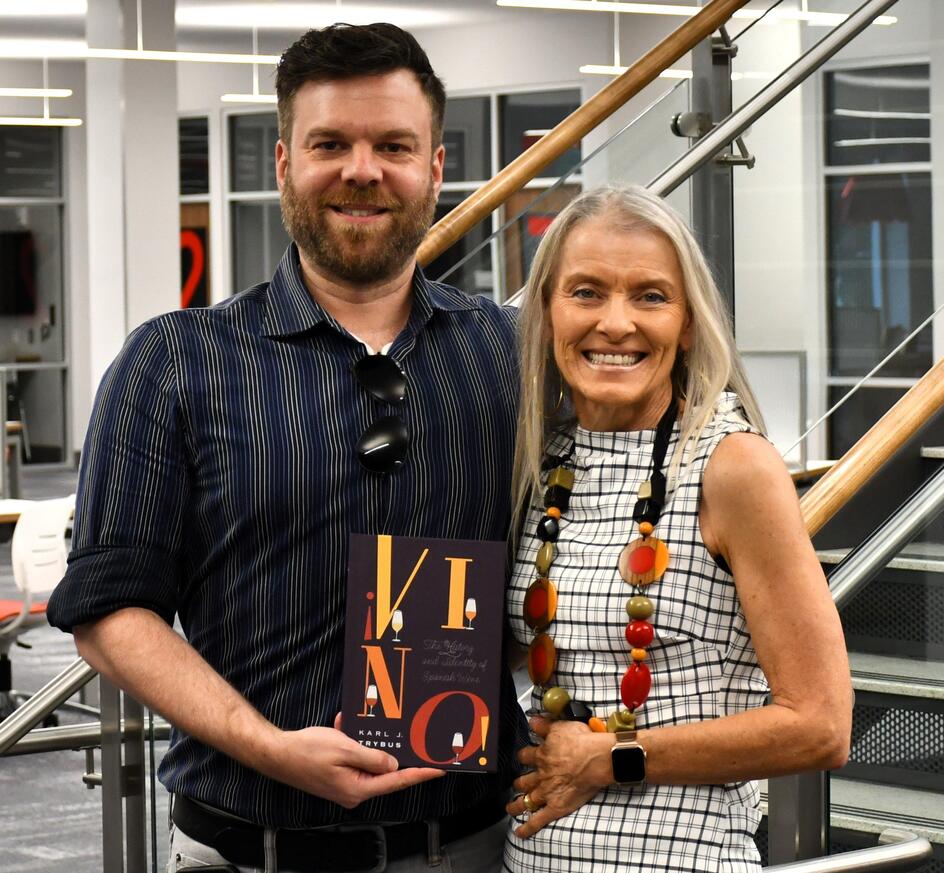September 29th, 2023
Limestone Faculty Member Donates Book To Limestone Library To Honor Author

Limestone faculty member Dr. Karl J. Trybus (left) receives the book ¡Vino! The History and Identity of Spanish Wine from fellow faculty member Dr. Jane Watkins at the Limestone Library on Thursday, Sept. 28.
Watkins donated the book to the Limestone Library in honor of Trybus, who authored the book.
¡Vino! The History and Identity of Spanish Wine explores the history and identity of Spanish wine production from the mid-nineteenth century to today. Nineteenth-century infestations of oidium fungus and phylloxera aphids devastated French and Italian vineyards but didn’t extend to the Iberian Peninsula at first, giving Spanish vintners the opportunity to increase their international sales.
Once French and Italian wineries rebounded, however, Spanish wine producers had to up their game. Spain could not produce only table wine; it needed a quality product to compete with the supposedly superior French wines. After the Spanish Civil War the totalitarian Franco regime turned its attention to Spain’s devastated agricultural sector, but the country’s wine industry did not rebound until well after World War II.
In the postwar years, it rebranded itself to compete in a more integrated European and international marketplace with the creation of a new wine identity. As European integration continued, Spanish wine producers and the tourism industry worked together to promote the uniqueness of Spain and the quality of its wines.
Trybus, a Limestone Professor of History and Department Chair of Humanities & Communication, explores the development of Spanish wine in the context of national and global events, tracing how the wine industry has fared and ultimately prospered despite civil war, regional concerns, foreign problems, and changing tastes.
Trybus is also Limestone's Program Coordinator of History & History/Pre-Law.


